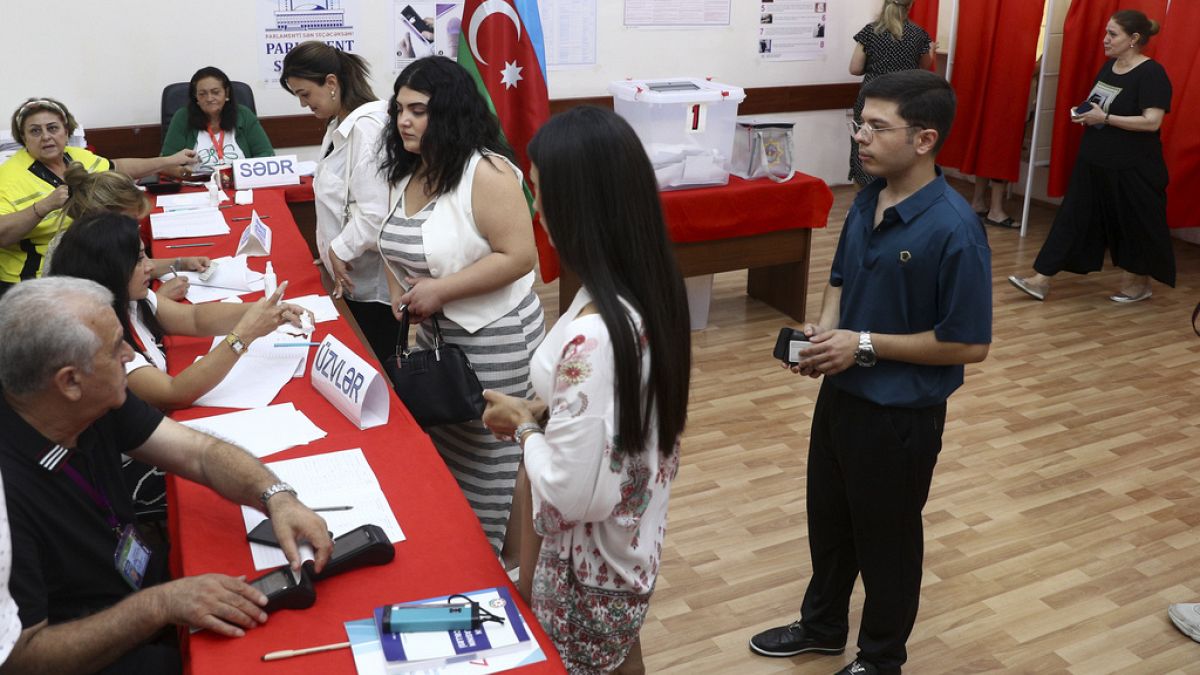The snap parliamentary election in Azerbaijan is being closely watched by international observers as 25 political parties compete for 125 positions in parliament. With 990 candidates vying for seats, the winners of this election will govern the country for the next five years. Despite concerns over the fairness of previous elections, Azerbaijani President Ilham Aliyev and his family were among the first to cast their ballots at a polling station in Baku. The ruling New Azerbaijan party is expected to maintain its dominance in parliament, with most seats currently held by pro-government parties and independents. This election follows a presidential election earlier in the year and comes amid ongoing geopolitical tensions in the region.
The Musavat party, the main opposition party in Azerbaijan, has put forth 34 candidates for the parliamentary election, but only 25 were registered. The Republican Alternative opposition party is running 12 candidates in an effort to challenge the ruling party’s stronghold in parliament. Azerbaijani President Aliyev decreed the snap election to be held two months early to avoid conflicting with the United Nations climate talks in Baku. This election also marks one year since Azerbaijani forces reclaimed the Karabakh region in a military operation, displacing the region’s Armenian residents. Azerbaijani voters are expressing their hopes for a better future and improved conditions for the country’s youth through their participation in the electoral process.
More than 6.4 million people have registered to vote in the parliamentary election, with 200 international observers invited by the Azerbaijani government to monitor the process. The National Election Commission has also enlisted 50 organizations to conduct observer missions to ensure the transparency and fairness of the election. The largest observer contingent from the Organisation for Security and Cooperation in Europe is expected to present its preliminary assessment of the election on Monday. Both domestic and international observers will play a crucial role in assessing the legitimacy of the election and upholding democratic principles in Azerbaijan.
Azerbaijan’s voters are turning out in large numbers to participate in the parliamentary election, with many expressing their hopes for a stable and prosperous future for the country. Despite concerns over past election practices, voters are eager to make their voices heard and contribute to shaping the direction of their nation. The election is seen as an opportunity for positive progress and development in Azerbaijan, with a focus on enhancing education, creating job opportunities, and reducing unemployment. The diversity of political parties participating in the election presents voters with a range of choices to determine the country’s leadership for the next five years.
The outcome of the parliamentary election in Azerbaijan will have significant implications for the country’s political landscape and governance in the coming years. The ruling New Azerbaijan party’s dominance in parliament is expected to continue, but challenges from opposition parties will test the party’s stronghold. With international observers closely monitoring the electoral process, the legitimacy of the election will be scrutinized, and the voices of Azerbaijani voters will be given weight in determining the country’s future direction. As the election results are tallied and winners are announced, the aspirations and hopes of Azerbaijani voters for a better future will guide the next phase of governance and development in the country.










